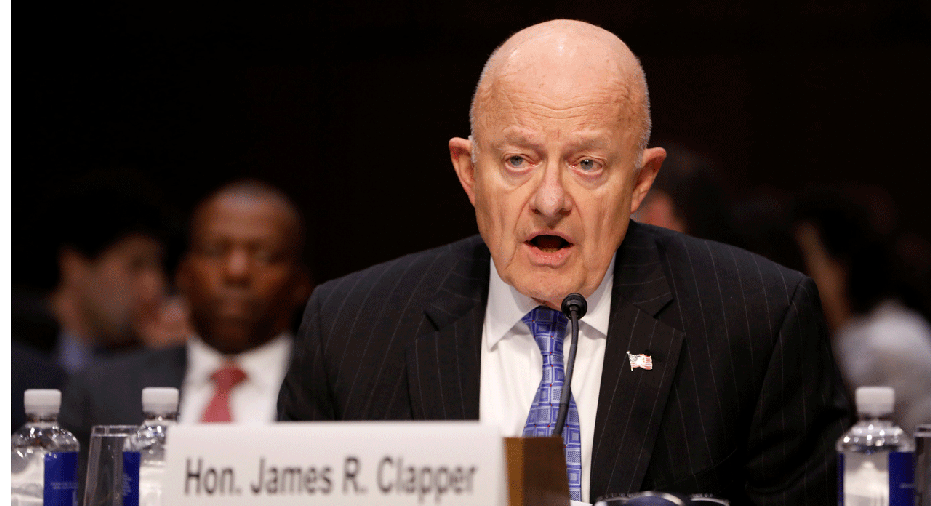Watergate "pales" compared with Trump-Russia, former U.S. intelligence head

The Watergate scandal pales in comparison to events in Washington surrounding U.S. President Donald Trump and alleged links between his campaign and Russia, former Director of National Intelligence James Clapper said on Wednesday.
Clapper questioned Trump's continued pro-Russian stance, saying his sharing of intelligence with Russia "reflect either ignorance or disrespect, and either is very problematic".
"I think if you compare the two that Watergate pales, really, in my view, compared to what we're confronting now," Clapper told reporters in Canberra, Australia's capital.
The break-in at the Democratic National Committee headquarters in the Watergate Hotel in Washington in 1972, and subsequent cover-up, brought down former Republican U.S. President Richard Nixon in 1974.
Clapper’s appearance in Canberra comes before highly anticipated testimony by sacked FBI director James Comey before the Senate intelligence committee on Thursday.
The committee is examining whether Trump’s campaign colluded with Russian officials to interfere in the U.S. presidential election.
Trump in May removed Comey as director of FBI, despite a U.S. Justice Department probe into contacts between presidential aides and Russia, raising the spectre of political interference in the investigation.
Trump has called the probe a "witch hunt" and said there was no collusion between his campaign and Russia.
Clapper said it was "inexplicable" that Trump continued his pro-Russia stance despite evidence Moscow sought to interfere in the 2016 U.S. presidential election.
"His subsequent actions, sharing sensitive intelligence with the Russians and compromising its source, reflect either ignorance or disrespect and either is very problematic," said Clapper.
Trump disclosed highly classified information about a planned Islamic State operation to Russia's foreign minister in an Oval Office meeting in May, two U.S. officials have said.
(Reporting by Colin Packham; Editing by Michael Perry)



















